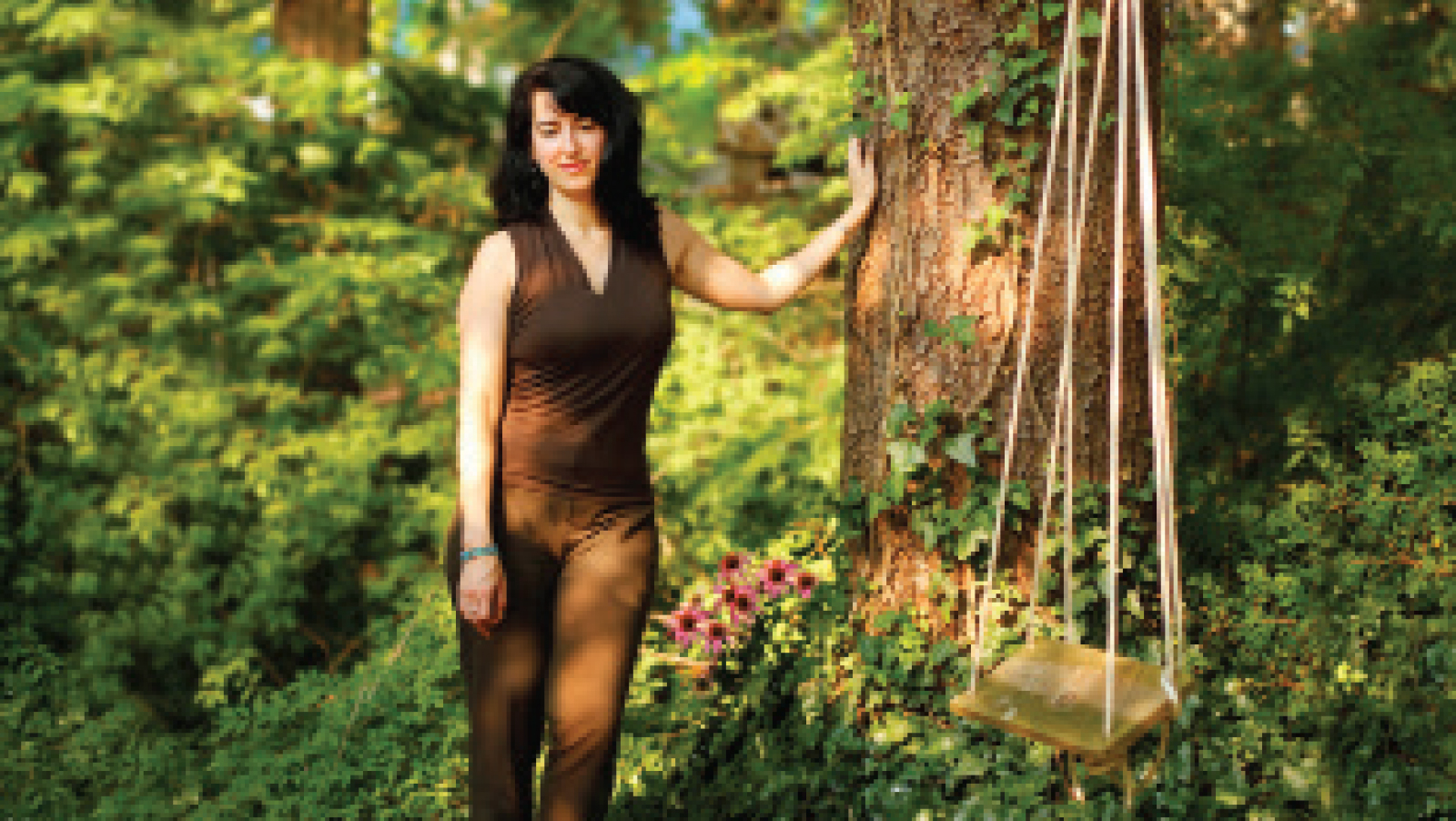Stop by L. L. Barkat's website and you'll learn that she is or has been an author, editor, poet, blogger, speaker, consultant, designer, and artist. Try to pin her down by asking, "Okay, what are you?" and Barkat—whose writing Scot McKnight compares to Eugene Peterson's—is momentarily stumped. Finally, she answers, "Participant."
"At various times I have taken on different titles depending on how I'm currently participating in life in a meaningful way," says the New York native. "There was a time when I took on the title of artist. Now you could call me an author, a managing editor, a poet. But none of those things singly define me, because as soon as I reach a plateau in my growth, I tend to turn and participate in life in a new way."
Lately Barkat is participating as an author (with her new book, God in the Yard); a managing editor (of the High Callings Blogs, an online "retreat center" for Christian writers to discuss faith, work, and culture); and a poet (her book of poems, InsideOut, has received warm reviews; she also hangs out online with other poets, composing "improv poetry" on Twitter). But usually Barkat goes back to participant, saying that she likes to connect people to one another—mostly in the online world—and to "help them embrace their gifts and call them to personal growth."
Question & Answer
What is God in the Yard about?
The power of solitude in nature. I sat outdoors in my backyard every day for an entire year for at least 15 minutes, rain or shine. It was an extraordinarily powerful experience.
What did you learn from it?
The book's subtitle is "Spiritual Practice for the Rest of Us." The word practice implies a reaching toward some kind of perfection; oddly, I feel it's ultimately self-focused: What can I do to make myself worthier? This book says there might be other ways to live spiritually—less about practice and more about participation, meaning that it's okay to simply "take part" in the Christian story, moment by moment with God and others. The focus is outward, even in solitude, because it depends on grace.
How did you get into poetry?
When I was asked to write a sonnet in college, it was such a dismal failure that I decided that poetry was best left to other people. I didn't start writing poetry in earnest until I got online—and that is key to understanding me as a writer. I write in community. Somebody asked me, "Tell me why you love to write," and I said, "I don't. I write to love." I started meeting poets online, and they encouraged me to try writing some poetry myself, and it went from there.
And now you write improv poetry on Twitter?
Yes. It's like a party where we write poetry. The first time we met, someone wrote something, and then I started modeling—I'd pick up words of people who would enter in, and use those words in my next poem, a whole poem of 140 characters or less. It's a very community-driven experience.
Is poetry a dying art?
I think it was, but the online world is changing that, mostly because of the ability to share one another's work.
More: llbarkat.com, HighCallingBlogs.com, Twitter.com/tspoetry
Copyright © 2010 Christianity Today. Click for reprint information.
Related Elsewhere:
God in the Yard is available from Amazon.com and other book retailers.
Previous "Who's Next" sections featured Robert Gelinas, Nicole Baker Fulgham, Gideon Strauss, W. David O. Taylor, Crystal Renaud, Eve Nunez, Adam Taylor, Matthew Lee Anderson, Margaret Feinberg, and Jonathan Merritt.










